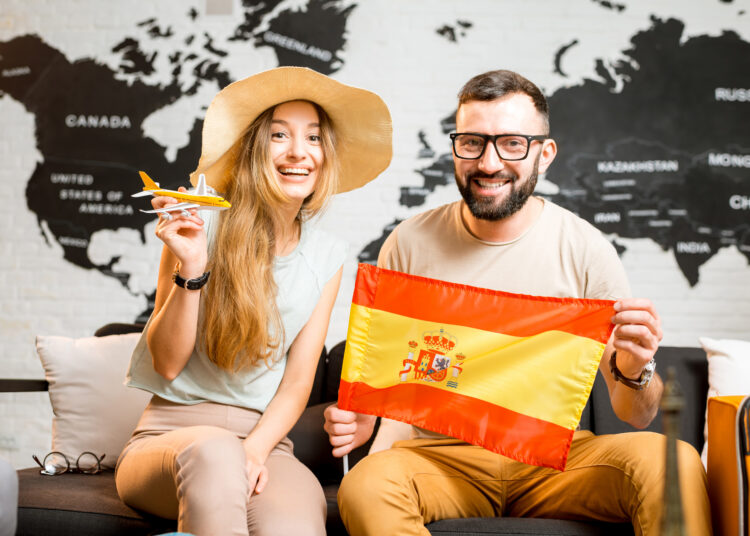With Spain’s Golden Visa program set to end in April 2025, a significant surge in applications for alternative residency routes has emerged. As the government moves to restrict real estate-based residency-by-investment, foreign investors and expats are seeking faster, easier ways to secure Spanish residency before stricter regulations take effect.
Experts warn that waiting too long could limit opportunities for residency in Spain, making it essential to explore other available pathways now.
Why Is Spain Ending the Golden Visa Program?
The Spanish government announced plans to phase out the Golden Visa in response to concerns about rising real estate prices, housing shortages, and economic inequality. Authorities argue that the program contributed to property speculation in cities like Madrid, Barcelona, and Valencia, making housing less affordable for locals.
As a result, new applications for Golden Visas through real estate investment (previously set at €500,000) will no longer be accepted after April 3, 2025. Those who already hold a Golden Visa will be allowed to renew under existing rules, but new investors are being forced to look elsewhere.
The Rush for Alternative Spanish Residency Options
With the Golden Visa no longer an option for new investors, thousands of people are shifting to alternative residency routes, including:
1. Non-Lucrative Visa (NLV) – The Most Popular Alternative
The Non-Lucrative Visa (NLV) is becoming the preferred choice for retirees, remote workers, and financially independent individuals looking to live in Spain without needing to invest in real estate.
•Who qualifies? Individuals who can prove sufficient financial means (around €28,000 per year for a single applicant).
•Main benefit: No requirement to work or invest in Spain.
•Residency timeline: Initially granted for 1 year, renewable for 2-year periods leading to permanent residency after 5 years.
The NLV is now receiving a record number of applications, making it a top alternative to the Golden Visa.
2. Spain’s Digital Nomad Visa – A Rising Trend
For remote workers and freelancers, Spain’s Digital Nomad Visa (introduced in 2023) provides an easier residency pathway without requiring investment.
•Who qualifies? Non-EU nationals earning at least €2,520 per month from foreign clients or remote employment.
•Main benefit: Live and work in Spain without the need for local employment or business incorporation.
•Residency timeline: Initial visa for 1 year, renewable for up to 5 years, followed by eligibility for permanent residency.
3. Entrepreneur Visa – Ideal for Business Owners
Spain also offers an Entrepreneur Visa for individuals who plan to launch a business in Spain. This route is ideal for investors who missed out on the Golden Visa but still want to contribute to the economy through job creation and innovation.
•Who qualifies? Entrepreneurs presenting a viable business plan with economic benefits for Spain.
•Main benefit: Direct residency approval for founders and their families.
•Residency timeline: Renewable annually, leading to permanent residency after 5 years.
These alternative programs are now seeing a sharp increase in applications, as people who previously considered the Golden Visa shift to more accessible options.
Yusuf Boz’s Insight: Spain’s Residency Future Without the Golden Visa
Investment migration expert Yusuf Boz weighed in on the shift in Spain’s residency landscape:
“The end of Spain’s Golden Visa is a turning point for international investors and expats. While this may seem like a loss, alternative routes such as the Non-Lucrative Visa and Digital Nomad Visa provide excellent opportunities for those still wanting to settle in Spain.”
Boz also noted the broader trend in European residency programs:
“As Spain closes its doors to real estate-driven residency, other European countries, such as Greece, Portugal, and Latvia, are stepping in to attract investors with more flexible and stable Golden Visa options.”
For those considering Spanish residency before further restrictions take place, Boz advises acting now to take advantage of available options before policy changes impact alternative visa routes.
What to Expect in 2025 and Beyond?
As Spain phases out the Golden Visa, several trends are expected:
•Higher Demand for Non-Lucrative and Digital Nomad Visas – The shift away from investment residency will push more applicants toward financially independent and remote worker visa programs.
•Longer Processing Times – As application numbers increase, approval times for NLV and Digital Nomad Visas may extend beyond current estimates.
•Tighter Immigration Controls – Spain’s government is likely to introduce stricter financial requirements to ensure new residents contribute to the economy without impacting local housing markets.
Meanwhile, investors seeking real estate-based residency are increasingly turning to Greece, Portugal, and Latvia, where Golden Visa programs remain intact and offer more competitive investment options.
Don’t Miss Your Window of Opportunity
With Spain’s Golden Visa coming to an end, alternative residency routes like the Non-Lucrative Visa, Digital Nomad Visa, and Entrepreneur Visa have become the best options for securing long-term residency. However, as demand surges, processing times and financial requirements could change, making early application essential.
For those still interested in investment-based residency, Greece and Portugal remain top choices for real estate-driven Golden Visa opportunities.
To explore your best residency options in Spain and beyond, contact NotteGlobal for expert guidance on securing European residency before new restrictions take effect.














